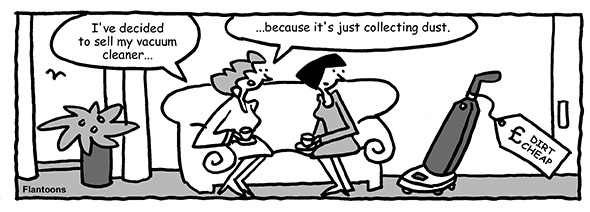
Cut down means to use less or do less of something.
You should cut down on the amount of cigarettes you smoke.
I've cut down on how much coffee I drink. I used to drink five cups a day, now I drink two.
We're cutting down on the amount of paper we use in the office.
To completely stop eating something, usually for health reasons.
My doctor recommended I cut out salt from my diet.
A new study has found that it is better for you to work 'normal' fixed hours, like a 9-to-5 job, than shift work, where your hours change from day to day or week to week.
The study published in the journal, 'Occupational and Environmental Medicine' found that long-term shift work can age your brain, cause memory loss, reduce processing speed and result in a decline in overall brain function.
Read through this short story. Which words do you think are missing?
Jennifer loved Halloween when she was young. One year she and her friends put on their Halloween costumes and went _1_ for sweets around the neighbourhood. That year Jennifer dressed up as a _2_ with a big black pointy hat, broomstick and long black dress.

This cartoon is based on the idiom collecting dust.
If something is collecting (or gathering) dust, it isn't being used any more. Dust is the fine dirt that builds up on surfaces that have not recently been cleaned. Objects become dusty if they are not used for a long time.
Examples:
What are the six missing words in this text?
_1_ English journalist Ann Morgan realised that most of the books she read were by British and American authors, she decided to set herself a challenge: she would _2_ to read a book from every country in the world in English.
After creating a blog and promoting her mission on social media, she asked _3_ from around the world to recommend the books she should read.
When you imagine something that is not real, it is all in your head.
They were not gossiping about you, it’s all in your head.
When you are ready and eager to listen, you are all ears.
Tell me what she said, I’m all ears.
When something is unusual for other people but not unusual for you, it’s all in a day’s work.
Read through this short text and guess what the missing words are:
Tim and Sara were brother and sister. They lived with their parents on a farm deep in the countryside.
As children they were never bored because there was always something to _1_ on the farm. Every day they would _2_ up early and help their parents feed the cows _3_ school.
If you do exactly what you are told to do, you follow instructions to the letter.
I don't know how it went wrong, I followed the instructions to the letter.
A letter a woman send to her boyfriend when she wants to end their relationship.
He's upset because he just got a Dear John letter from his girlfriend.
The core school subjects are English, Maths and Science. There are many subjects we learn in Bristish high schools. Here are some of the ones we remember from our school days.
Maths / Mathematics
The study of numbers and shapes.
As part of maths you learn amongst other things algebra and geometry.
Algebra
A type of mathematics in which letters and symbols are used to represent quantities.
Words that end in -re in British English usually end -er in American English:
British: centre
American: center
Words that end in -our in British English often end in -or in American English:
British: colour
American: color
-ise verbs are always spelled with -ize in American English: